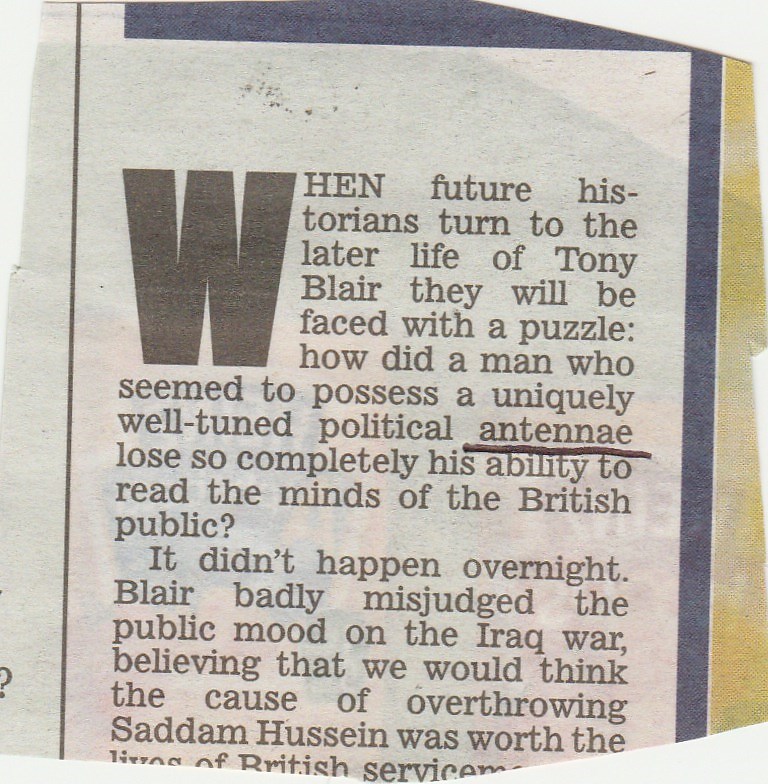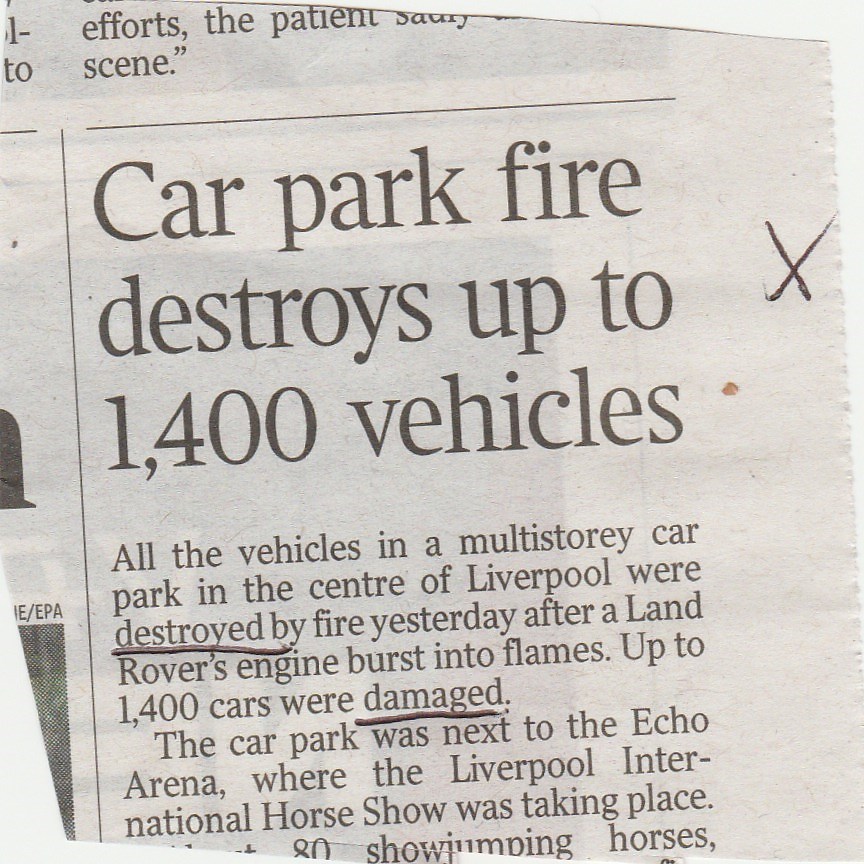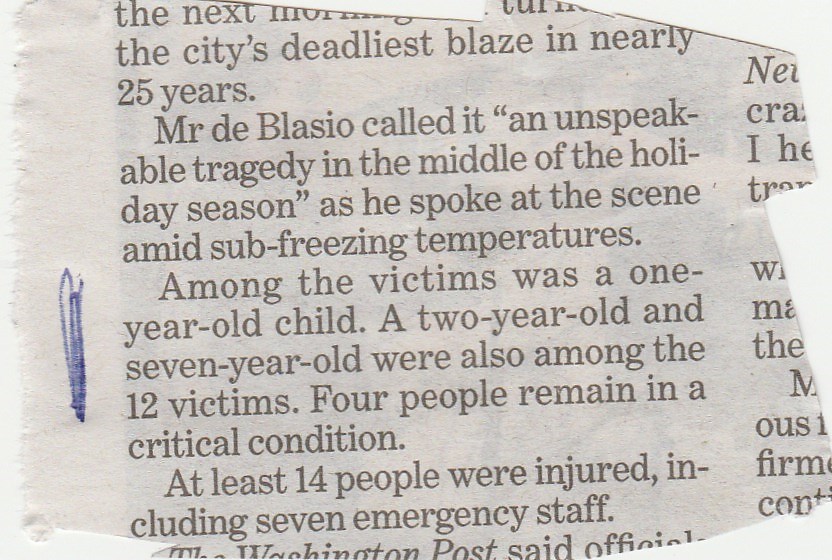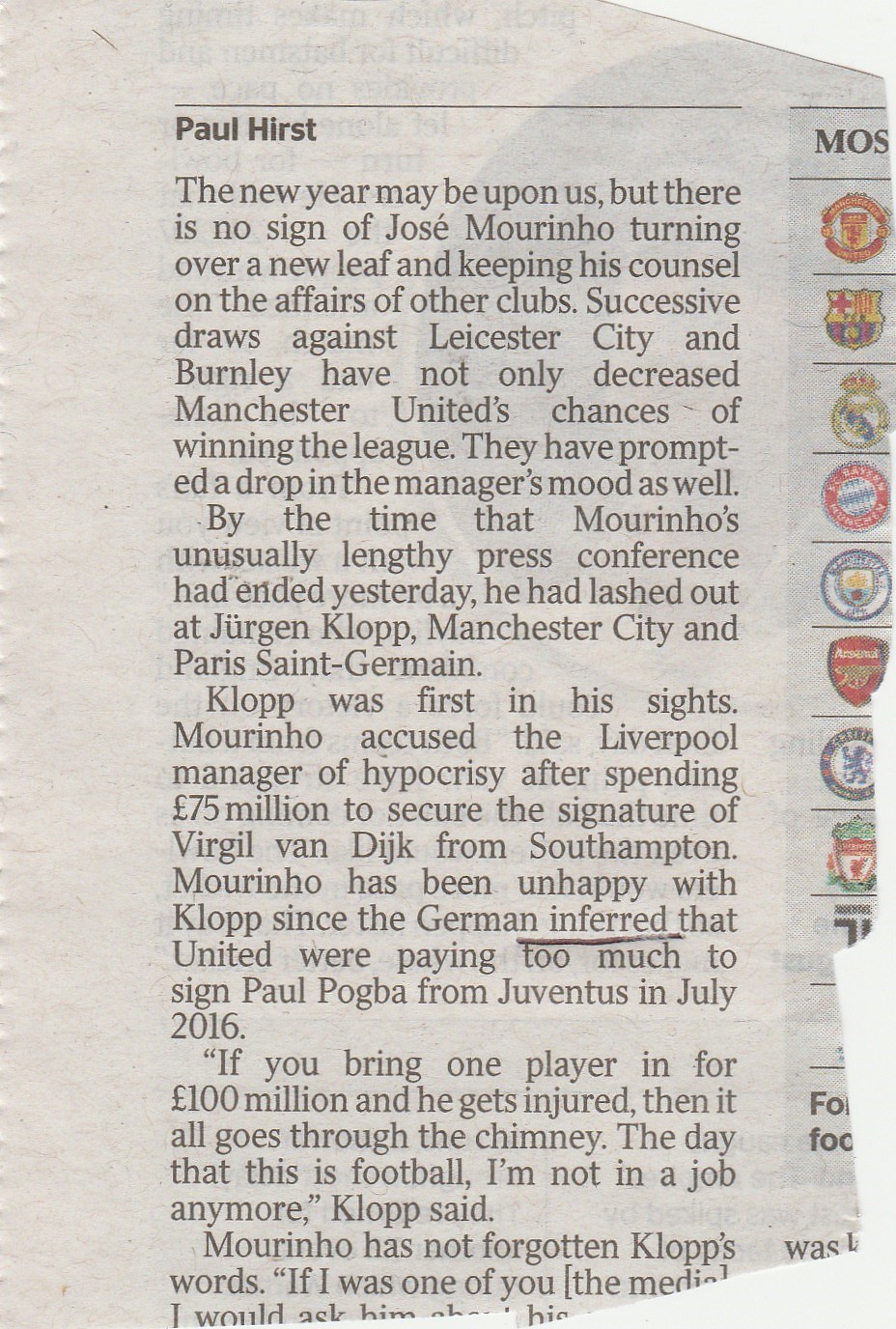 Daily Express, January 5, 2018
Daily Express, January 5, 2018
Two errors conveniently packaged in one word. An antenna can be an insect’s feeler, when the plural is antennae, or part of a radio receiver, when the plural is antennas. Here this is a metaphor for a radio receiver, but the writer has chosen the insect one, and mixed up singular and plural into the bargain. It should be ‘a uniquely well-tuned political antenna’; I shouldn’t think you need more than one for political purposes.
 Sunday Express, December 21, 2017
Sunday Express, December 21, 2017 The Times, January 2, 2017
The Times, January 2, 2017 The Times, January 1, 2017
The Times, January 1, 2017
 i newspaper, January 1, 2018
i newspaper, January 1, 2018 Sun on Sunday, December 31, 2017
Sun on Sunday, December 31, 2017 Sunday Times, December 31, 2017
Sunday Times, December 31, 2017 i newspaper, December 30, 2017
i newspaper, December 30, 2017 i newspaper, December 30, 2017
i newspaper, December 30, 2017 The Times, December 30, 2017
The Times, December 30, 2017